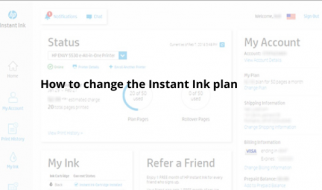
Antidepressants are tricky. Or maybe it?s everything that goes along with them, the whole mess of misunderstanding, misinformation, and the machinery of an addled mind. I?m on my third prescribed antidepressant. I like this one. I liked the last one, too, for a while.
When I started on Wellbutrin last year, I needed help. Depression consumed me like a collapsing mine swallows a house. I had tried Lexapro before, only for a month (more on that later), and it left me feeling groggy, vaguely sick to my stomach, and emotionally muted. I knew I didn?t want that again, and I told my new psychiatrist so.
Lexapro is an SSRI or selective serotonin reuptake inhibitor. It?s perfectly reasonable to, upon hearing that someone didn?t have the best reaction to an SSRI, try switching which neurotransmitters we tinker with, medication-wise, which is why I ended up on Wellbutrin, an NDRI or norepinehprine and dopamine reuptake inhibitor.
Serotonin, norepinephrine, and dopamine are just three of about a dozen neurotransmitters that, very basically, send signals between your 100 billion neurons. The way they work is positively fascinating, not to mention mindbogglingly complex. I?ll attempt to explain a bit of it.
A very rough example of how neurotransmitters work
Imagine an artist you?re kind of lukewarm about is coming to town. You could be talked into going, but you don?t want to just go with Sera, who?s a super fan with hours and hours of bootleg recordings and candid footage to tell you about. Now, if your friend Norey and love interest Dopathy wanted to come, too, that would be a fun time. In short, to get you excited enough to go to the show, you?ll need a bit of contact with Sera, Norey, and Dopathy.
You really want to go with Dopathy, so even just a text would go a long way. You know Sera is going and fully expect to be harangued about going with her. It?ll be nice to have her insider knowledge, but if she gets too annoying and calls you incessantly, you might get totally fed up and not go at all. Having Norey there to balance Sera out a bit is going to be necessary. To sum up, you are all ears for any message from D, expecting to get a ton of messages from S (so many that you?ll miss and/or ignore a few), and waiting for N?s confirmation before you go all in and buy tickets.
I forgot to mention that your evil ex Gabbie might be going, and if that?s true, then it doesn?t matter who calls or texts you ? you?ll be at home eating ice cream and binge watching sad episodes of The Office. And if you don?t go, then Hista, who secretly likes you even though you aren?t receptive, probably won?t go, unless Choleen is persistent enough, that is.
Every single one of your 100 billion neurons is participating in a unique situation very roughly like that. It?s relying on a collection of inputs, which are in turn outputs from other neurons, to hit a certain level before putting out its own signal, which another neuron is waiting on. Neurotransmitters are the signals. They bridge a gap called a synapse between the ?arms? (dendrites) of a neuron.
So what?s a ?reuptake inhibitor? then?
I was purposefully vague on the distinction between neurons and neurotransmitters in the example above ? Sera would be a neuron that produces the ?message? serotonin. To stick with our analogy, you can think of serotonin as Sera?s data plan on her cell phone. A reuptake inhibitor is a bit like adding rollover data but more so, like if she also got back 80% of the data she used streaming videos to convince you to go to the show.
In this case, you don?t need a selective Sera?s-messages reuptake inhibitor. Her signal is already coming through loud and clear, and you?re going to get sick if you hear another deep cut from the unabridged discography. You want to hear more from Dopathy and Norey, who are both apparently on woefully insufficient phone plans in this example. (This is where the analogy starts to either break down or become unhelpfully convoluted, so I?m going to squeeze just a bit more blood out of this turnip and then move along.)
Sera, Norey, Dopathy, Gabbie, Hista, and Choleen each have there own set of things that need to happen to get them excited about the show, and there are about 100 billion others just like them, all just as complexly connected. It?s no wonder that it can take a few tries to figure out what blanket solution produces something as nuanced as a healthy mental state.
What?s truly wild is that these drugs actually work. There?s evidence that antidepressants can actually trigger neurogenesis in certain areas of the brain ? that?s about as close to the brain literally rewiring itself as you can get.
Back to that addled mind
?If my devils are to leave me, I?m afraid my angels will take flight as well.? ? Rainer Maria Rilke
?Lobotomy pills? was what I used to call them. I had images of drooling, checked-out mental patients and visions of myself as the tortured artist. I had that damned Rilke quote clanging around in my head. I trusted Hollywood and a turn-of-the-century poet over medical professionals. It?s difficult to overstate how wrongheaded and dangerous this thinking is.
My major depressive and generalized anxiety disorders had latched onto doubt and misconception. That?s what they do: twist reality. It can be truly difficult to see past that self-delusion to even talk with a medical professional about medication, even when you?re already self-medicating like a champ with good old, serotonin-boosting booze (never mind feeling even worse than before in the morning).
As I mentioned earlier, once I got my first prescription, I only stayed with it for about a month total, and that includes the two weeks I spent weening myself off of it, just in case. Let me say unequivocally that this is not long enough. I decided it wasn?t working, decided that I didn?t like being on it, and stopped. I don?t remember precisely what I told myself then about how I?d make it through. It was almost ten years ago. I do remember that I kept drinking during that month, which didn?t give Lexapro a fair shot to make a difference.
Wellbutrin was the wrong choice
With the Wellbutrin, I gave it every chance in the world. To its credit, it stopped the spread of that depression sinkhole, even covered over it with some plywood. I noticed that I got angry easier, but I let it slide, telling myself it would go away. My anxiety got worse and worse. When I?d hit the six-week mark, I asked my psychiatrist about it. She said that any side effects that were still lingering were likely to stay.
I stuck with it. I stuck through the anger ? the rage. I learned about panic attacks, which were new to me, and told myself they were happening because I?d stopped drinking. I meditated and wrung my hands at therapy appointments. My life slowly became increasingly controlled by anger and fear, and still I stuck with it.
One of the fears was that I needed the Wellbutrin to keep from killing myself. Never mind that the panic attacks had come with aggressively intrusive suicidal thoughts. I actually had to get on beta blockers, which block adrenaline receptors, to control the full-body feedback loop of the panic attacks. They helped tremendously, but I was needing them more and more often.
I felt unable to control my anger and panic responses, which is common in PTSD. It seems to be tied to a hyper-reactive amygdala, the part of the brain responsible for emotions generally and aggression and fear specifically. The amygdala can essentially take the wheel and steer without involving the prefrontal cortex, which is the part of the brain responsible, very basically, for being reasonable. When someone mistakes a cell phone for a gun and shoots first, the amygdala is driving.
My anxiety had full reign of all things past, present, and future, and it was beginning to affect my behavior. After about ten months on Wellbutrin, I hit a tipping point. During a full-on meltdown, I struck myself repeatedly in the head and then demanded of my soon-to-be fiance that she smash my skull in with a rock. I even got into position.
Let?s just say that it was easy to find this depressing, which meant that the Wellbutrin was now making my anxiety worse, leading to intense fits of rage, and helping me find a whole new kind of despair than before.
Switching antidepressants
I didn?t try to taper myself off of Wellbutrin. I just moved up my appointment with my psychiatrist. Talking to her, I was wracked with feelings of guilt and anxiety.
Why guilt? I should have told her it wasn?t working earlier. I should have known it was the wrong medication. My suffering is my own fault because I didn?t speak up when I was afraid that if I did she?d take the Wellbutrin and the only peace I had away. She?s a good doctor; I?m just being a terrible patient, standing in the way of my own recovery.
Why anxiety? Well obviously she knows I?m just after drugs. I didn?t stop the Wellbutrin earlier because it felt good to take it, because I must have been chasing that, but now it?s gone, so I?m just back for another high. What if every pill just has side effects like this? What if the next one is worse? What if I?m completely broken ? or worse, what if there?s nothing wrong with me at all, and I?m just too pathetic to live?
Oof. There?s plenty more where that came from. I almost broke down asking her, begging her, to switch my medication. I even felt guilty that I had a pill already in mind, like I was trying to do her job for her.
Research and anecdotes from friends and friends thereof showed that I wasn?t alone in feeling crazier on Wellbutrin. Many who?d started there and hated themselves on it were finding relief with Cymbalta, an SSNRI or selective serotonin and norepinphrine reuptake inhibitor. People said things like ?changed my life? and ?it?s like all of my baggage disappeared.?
It?s hard to say precisely how much was getting off Wellbutrin and how much was getting on Cymbalta, but the change has been phenomenal. The first thing I noticed was gaining back my ability to let things go, which I was finding all but impossible on Wellbutrin. (At my worst, I was even digging up old memories and getting angry about them anew.) When someone cut me off and I didn?t start screaming terrible things at the windshield, I knew things were getting better.
 Starting up the first pitch of Charlotte Dome
Starting up the first pitch of Charlotte Dome
I haven?t had a single panic attack in the three months since switching. Not one. Not even while hanging off the side of Charlotte Dome, a thousand feet up, on a recent climbing trip into the High Sierra. Oddly I think some of my motivation left with my anxiety (and probably the stimulating effects of Wellbutrin), but I?m dealing with that.
I still have pangs of depression and anxiety, but they pass, and I deal with them using skills I?ve cultivated in therapy. It?s been a year since my last drink, which isn?t something I thought I?d ever say. That?s been its own journey.
Cymbalta is working for now. I have trouble sleeping while taking it, and my stomach is a bit tender in the mornings, but it feels like my head?s on straight for the first time in years.
If you do have to switch
It?s going to be okay. Communicate with people around you, and give yourself space to get a little weird. It can be difficult, but have patience at this stage. The majority of side effects should pass within six weeks, and if they don?t, tell your doctor.
It?s always important to stay hydrated. Drinking plenty of water helps reduce many side effects, and it happens to be not only very cheap but healthy. In the same vein is exercise. Now, if I hear one more person say you should stop taking antidepressants and go to the gym instead, I?ll scream. Don?t do that. Do get some exercise.
Every study I?ve ever seen shows that therapy and medication work better together than separately. I am fortunate in that I have good insurance that makes therapy affordable, but not everyone is. There are still resources available, from online communities and support groups to sliding-scale clinics and training universities.
I know too well how scary and frustrating the wrong medication can be. Unlike many other illnesses, depression and anxiety aren?t straightforwardly caused or remedied. There?s no bug to immobilize, no protein to supplement. At this point, we tinker with a few neurotransmitters and cross our fingers. That said, there are treatments out there that have been around for decades and are helping millions of people around the world.
You are not unfixable. Don?t give up hope. Each new round of therapy and medication teaches us a bit more. We learn what works and what doesn?t.


